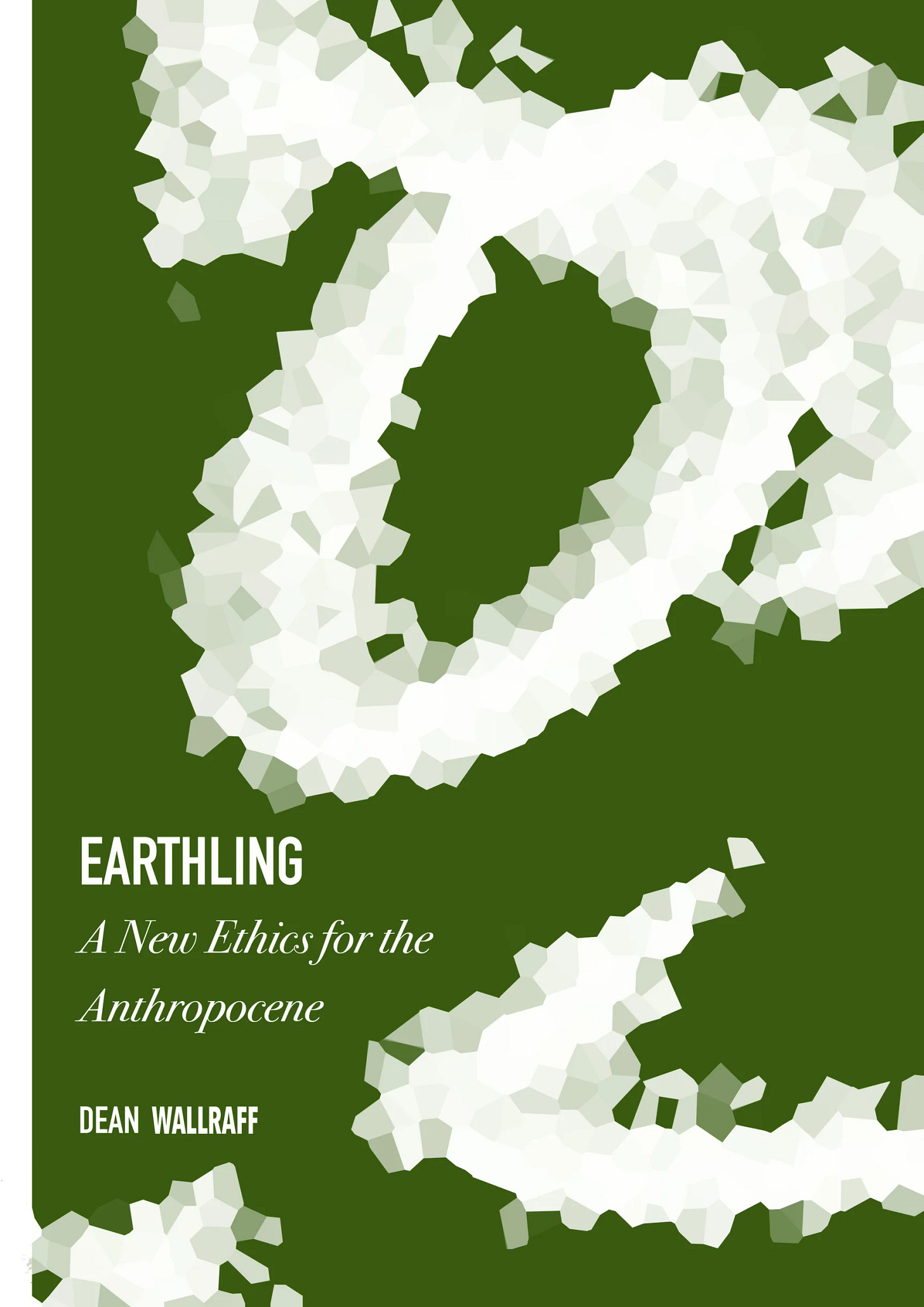Climate Ethics
Announcing new book: Earthling: A New Ethics for the Anthropocene
My book on climate ethics, Earthling: A New Ethics for the Anthropocene, has just been published by Ethics Press. My organization, Advocates for the Environment, organized a day-long webinar on climate litigation on Earth Day 2020. The Earthling book and this Substack are my way of continuing to fight global heating.
The Earthling book is a comprehensive overview of climate issues, with chapters on climate science, sustainability, climate economics, law, and politics. It’s unique in that it discusses these different aspects within an overall framework of ethics. It’s available for pre-order now on the Ethics Press website.
There are many climate-related ethical issues, but the two most important are future generations and non-human animals. Some arguments pooh-pooh the idea that we should seriously take the interests of future generations into account. One such argument is based on economic discounting. With a high discount rate, economic models essentially ignore impacts in the distant future. Another argument is based on the so-called “non-identity problem,” a philosophical stance holding that humans who haven’t been born yet don’t have identities, so they aren’t real people and therefore can’t be harmed. I counter these arguments in my book.
Non-human animals have also been left out of the moral equation for climate change. At best, we tend to see them in instrumental terms, in terms of their usefulness to humans. They have no economic interests, so they are omitted from economic analyses. And, according yo some religions, they have no souls, they’re essentially machines, and don’t count. But I think they should have some moral standing; they deserve to be given ethical weight of their own, less than humans, but still significant.
I believe that climate disruption is by far the most significant problem we humans face today. I would love it if Earthling could help you think about it and find the inspiration and means to fight harder to save our planet.




Thank you for your hard work.